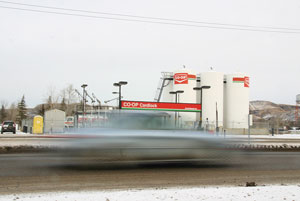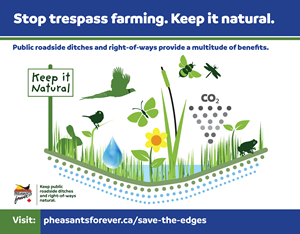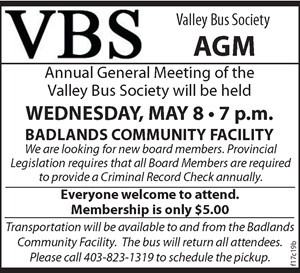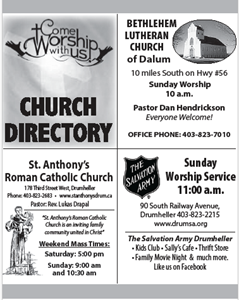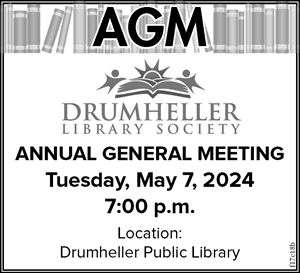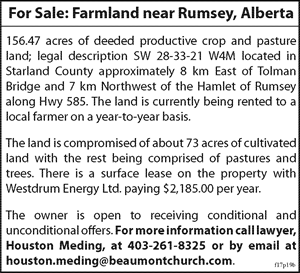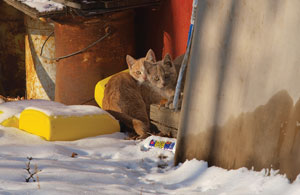
As reported in the December 7 edition of The Drumheller Mail, council had been presented with a draft of the Responsible Pet Owners bylaw.
The draft, if passed, would replace the current Animal Control bylaw and would require cat owners to register and tag their cats. Other changes within the draft include greater restrictions regarding vicious dogs and larger fines for infractions of the bylaw.
Reactions among residents have been mixed between those who wish the bylaw to go though, those who want it scrapped, and those who want something in between.
“I’m not happy with it at all,” said Diane Synder. “I agree some of the bylaws regarding animals should be changed, but not to this extent.”
Currently under the Animal Control Bylaw, dog owners already pay an annual registration fee of $35 per dog.
“I don’t think it's fair that dogs owners have to do so much, but cat owners don’t,” said Allison Fotheringham, a cat owner.
“A lot of cats can’t wear a collar,” said John Shoff, who owns a dog. “They will scratch at their necks until they’re bleeding to get the collar off.”
One of the goals of the draft is to reduced the number of feral cats in Drumheller. However, there has been confusion among residents as to how cat registration will achieve that goal. Suggestions have pointed to a spaying and neutering program, and although expensive, may be the only way to reduce the feral cat population.
“As for licensing cats, if they think this will help get rid of the feral cats in Drumheller, think again, it’s not going to work,” said Snyder. “I understand that to get an animal fixed is expensive and there are people that genuinely can’t afford it. But maybe there’s a government or town resource that could help people out with the cost.”
“People have a valid concern that the cost of spaying and neutering an animal is high,” said Fotheringham. "I think part of the cost of licensing should go to a spay/neuter program.”
There is concern over the definition and penalties for vicious dogs. The draft currently defines a vicious dog as any dog that is observed to have chased, injured, or bitten a person or other animal, damaged property, threatened or created the reasonable apprehension of a threat to a person or animal, or been previously determined to be a dangerous dog under the provincial Dangerous Dogs Act.
“Their description of what a vicious animal is, essentially up to the bylaw officer,” said Shoff. “If the dog makes any suggestion of a bark or a bite, it could be deemed a vicious dog and it doesn’t matter what kind of dog it is. If a bylaw officer is threatened by my dog, I have to get a separate permit to have that dog and I have to get a two million dollar insurance policy on that dog.”
Residents who are deemed to have a vicious dog would be required to keep the dog at least one metre away from their property line, regardless if there is a fence or not. For example, were a resident to have a fence at the edge of their property, a vicious dog would still have be tied so as to not be within the one metre restriction.
“For one, I don’t understand the logic behind there being a one metre restriction between your dog and your property line,” said Shoff. “If you have a secure fence, and your dog can’t get out, you’re still breaking the law if the dog can go right up to the fence. If I have a dog, why can’t he run in my yard?
"I’ve spoken to the police about an unrelated matter and one of the officers suggested having a dog for personal safety. But the town is saying that we don’t want you to have a dog that is in any way aggressive.”
The draft is currently just that. Council is awaiting feedback from residents to make an informed decision regarding the bylaw. Residents are encouraged to contact town councillors and make their opinions regarding the bylaw known. More information regarding the draft can be found at www.dinosaurvalley.com/council-meeting-dates-minutes in the database under the agenda for the Council Committee held on November 28. Discussion regarding the draft can be found on The Drumheller Mail’s Facebook page.
“There are a lot of people who are really upset now and who have already stated they will not donate anything more to the Humane Society,” said Snyder. “It’s a wonderful organization, but this is not the way to do it.”
“If people don’t speak up, then that draft gets stamped and becomes a bylaw,” said Shoff. “We definitely need to not make this a bylaw, because it's way too restrictive.”
“Cats, like dogs, are pets and not wild animals,” said Fotheringham. “They should be inside or in immediate contact with their owners.”

